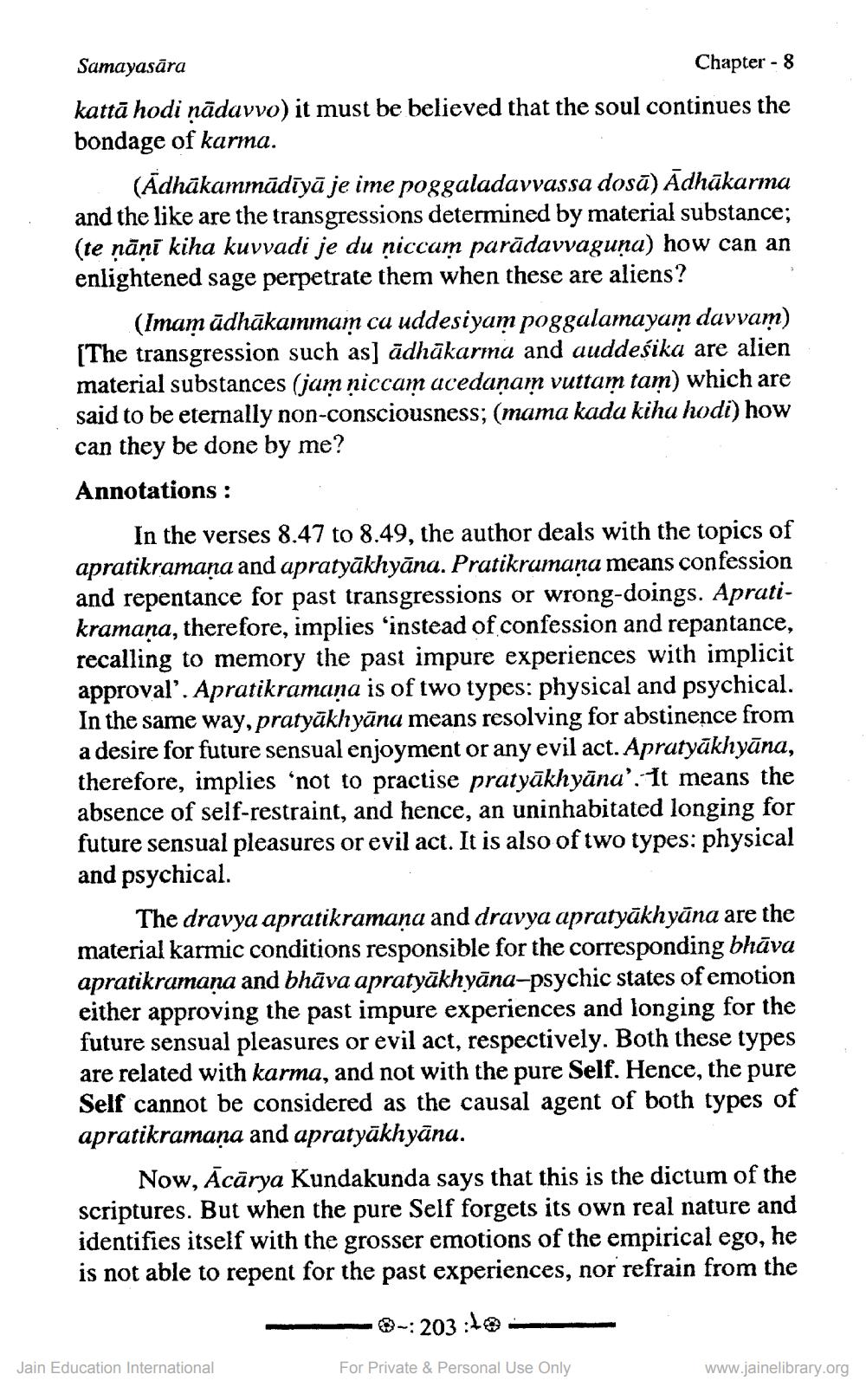________________
Samayasāra
Chapter - 8 kattā hodi nādavvo) it must be believed that the soul continues the bondage of karma.
(Ādhākammādīyā je ime poggaladavvassa dosā) Adhākarma and the like are the transgressions determined by material substance; (te ņāņi kiha kuvvadi je du niccam parādavvaguna) how can an enlightened sage perpetrate them when these are aliens?
(Imam ūdhākammam ca uddesiyam poggalamayam davvam) [The transgression such as) ādhākarma and auddeśika are alien material substances (jum niccam acedanam vuttam tam) which are said to be eternally non-consciousness; (mama kada kiha hodi) how can they be done by me? Annotations :
In the verses 8.47 to 8.49, the author deals with the topics of apratikramana and apratyākhyāna. Pratikrumana means confession and repentance for past transgressions or wrong-doings. Apratikramana, therefore, implies ‘instead of confession and repantance, recalling to memory the past impure experiences with implicit approval'. Apratikramana is of two types: physical and psychical. In the same way, pratyākhyāna means resolving for abstinence from a desire for future sensual enjoyment or any evil act. Apratyākhyāna, therefore, implies 'not to practise pratyākhyāna'. It means the absence of self-restraint, and hence, an uninhabitated longing for future sensual pleasures or evil act. It is also of two types: physical and psychical.
The dravya apratikramana and dravya apratyākhyāna are the material karmic conditions responsible for the corresponding bhāva apratikrumana and bhāva apratyākhyāna-psychic states of emotion either approving the past impure experiences and longing for the future sensual pleasures or evil act, respectively. Both these types are related with karma, and not with the pure Self. Hence, the pure Self cannot be considered as the causal agent of both types of apratikramana and apratyākhyāna.
Now, Ācārya Kundakunda says that this is the dictum of the scriptures. But when the pure Self forgets its own real nature and identifies itself with the grosser emotions of the empirical ego, he is not able to repent for the past experiences, nor refrain from the
-
-:203:10 -
Jain Education International
For Private & Personal Use Only
www.jainelibrary.org




